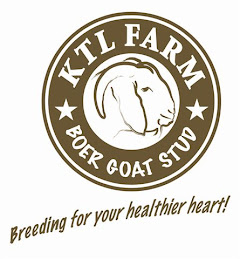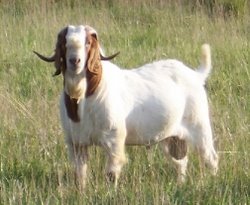
Australia - World Leaders in Livestock Export
Australia is recognized as the world leaders in the export of livestock. This is due to a national inquiry initiated in 2003 (the Keniry Report) which made the following eight recommendations, all of which were implemented by the end of 2004:
- Veterinarians to be on ships for all long haul voyages (for example, to the Middle East).
- The development of new national animal welfare regulations, requirements and standards.
- Increased government involvement in regulatory control (including unannounced audits and inspections).
- The introduction of an individual consignment risk management approach for all shipments which will ensure that all potential risks affecting animal care are minimised.
- Upgrade of assembly depots.
- Progress on the establishment of formal agreements with the importing country.
- Governments in the Middle Eastern/North Africa region to supervise the discharge of all consignments.
- A further A$1 million a year investment in improving animal welfare outcomes in the Middle East.
Get the facts: Caring for exports

Caring for animals is the number one priority for everyone in the livestock export industry; from farmers and transport operators to feedlot managers, stockmen, vets and exporters.
Farmers are committed to the wellbeing of their animals. They take pride in the quality of their animals, knowing that well cared for livestock are the most productive animals.
Australian farmers are interested in the welfare of their animals beyond the farm gate. They support the livestock export industry because they know it must comply with high standards of care.
Exporters make animal care their first priority. This is not only for ethical reasons but also to ensure they maintain the confidence of their customers.
They must satisfy their customers about the quality of the animals that are shipped and their wellbeing on arrival. If exporters fail to meet these strict requirements, they will lose money and contracts.
The public can be confident that exports are carried out humanely and safely. Everyone involved in the livestock export industry understands that there is a level of concern in Australia and other countries about the livestock export trade. The industry’s survival depends on the community and government having confidence that the trade is conducted with the highest standards of animal care.
These care standards are reflected in law. Strict regulations have been established with input from the industry, animal welfare bodies and government departments.
We lead the world with our standards of animal care in livestock export. The Australian industry has many years’ experience in the shipping of livestock. Recent research found we lead the world with our standards of animal care during export.
An independent report, published by Alliance Resource Economics in March 2006 and titled “World Livestock Export Standards”, found:
“Australia has world-best livestock export standards in terms of coverage and capacity to deliver acceptable outcomes.”
Strict industry standards have successfully improved livestock export. In 2006, 4.15 million sheep, 25,353 goats and 618,645 cattle were exported from Australia.
The 2006 success rates in export deliveries were 99.1% for sheep, 99.82% for cattle and 99.51% for goats. These figures demonstrate a significant improving trend over the last ten years.
We care: Animal care

Animal care is the first priority for everyone involved in the Australian livestock export industry.
During the voyage
All livestock export ships comply with the following strict standards:
- Feed and water are constantly available to the animals during the voyage. Volumes are stipulated and checked prior to departure.
- Animals have space to walk around and lie down in their pens.
- To ensure fresh air, ventilation systems provide each deck of the ship with a full air change at least every two minutes.
- Highly trained, accredited Australian stockmen support the crew by providing care to animals throughout the voyage.
- A veterinary kit ensures adequate supplies of veterinary treatments if required.
- Animals that become sick are isolated and cared for in special 'hospital' pens.
On arrival
When the ship docks, quarantine vets inspect all animals for illness and must sign-off on their health before they are unloaded.
The animals then spend a short time in a feedlot, where they are well fed and closely monitored to ensure they are in top condition before going to market.
The livestock export industry is investing both money and human resources into improving the way Australian animals are handled and processed in overseas markets.
This includes investing heavily in training the staff of local abattoirs and feedlots in the proper handling of our animals. In the Middle East this training is carried out by a dedicated team of animal welfare specialists based permanently in the region.
To date this team has improved facilities across the Middle East and worked with importers, feedlot managers and stockmen to help them better understand how to work with Australian animals. This is part of a wider program involving liaison with Middle Eastern governments to ensure there are suitable standards and processes in place for how Australian animals are treated upon arrival in the region, as well as investment in new equipment and the upgrading of facilities.

